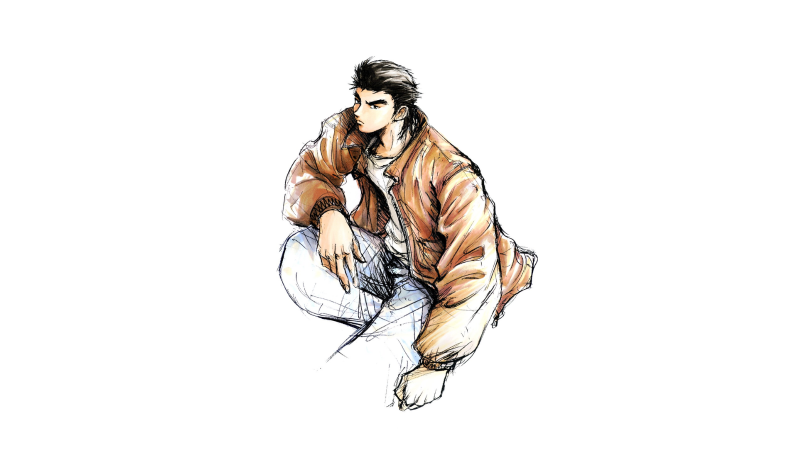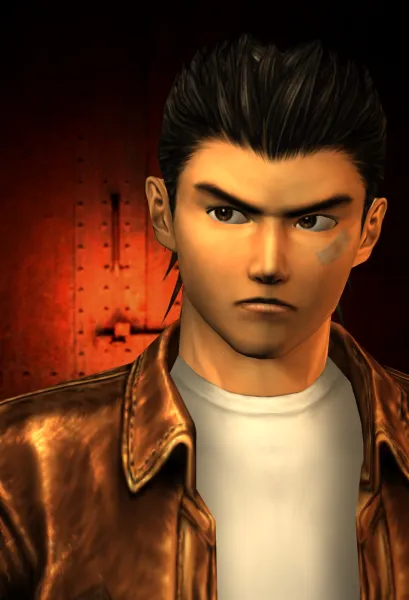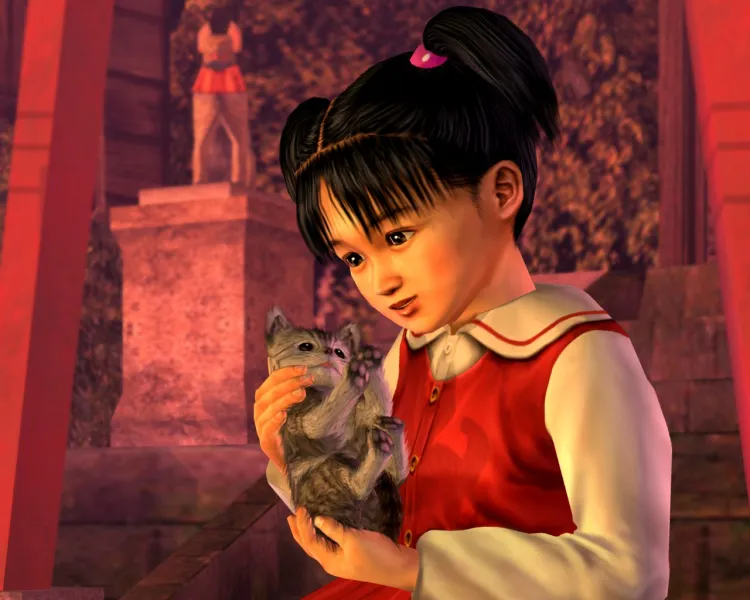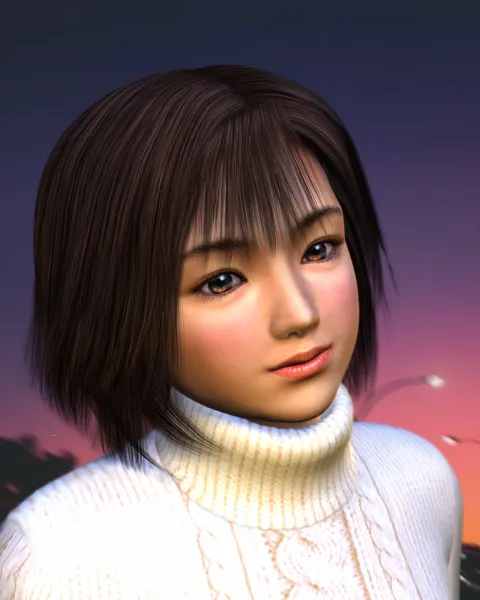Shenmue Is A Beautiful Grief Simulator

Content warning for discussion of death and the loss of a child.
In the 22 years since Shenmue’s debut, I’ve played the game 23 times. Twenty-three times I’ve lived the life of protagonist Ryo Hazuki, watched his father die, and navigated his world and experiences. Each time I’ve realized something new about the game, the people who made it, or something new about myself.
Playthrough 23 was the most poignant of them all. I saw, noticed, and felt things I hadn’t in any other, and it’s given me a new appreciation for Yu Suzuki and Sega’s AM2 development team.
More than anything else, Shenmue is a video game about how a real person in a real world inhabited by other real people experiences the death of a loved one and the loneliness that follows.

In the fall of 2020, my wife and I lost a baby. He was named Henry, and he died before taking his first breath. It was no one’s fault; just bad luck or some undetectable condition. No one knows. But my son was gone, and his death was devastating for my wife and I.
To be confronted by the death of someone so young and innocent was disorienting in ways I could never have predicted. I’d lost something irreplaceable and wasn’t ready for what came next.
I spent every hour of every day thinking about Henry and death. I dwelt upon what I’d lost. I projected my worry into the future and onto my two daughters, aged 4 and 6. An oily fist gripped my heart. What if there was another unexplainable twist of fate? What if something happened to my girls, too? We were in the middle of a pandemic then, and it was impossible to get through a day without thinking of death.
With sinister subtlety, the grief and anxiety morphed into depression. Relentless sadness overwhelmed me as I struggled to understand these new feelings and to function despite them. For the first time in my life, I suffered panic attacks.
I hit rock bottom. I found a psychiatrist. Through months of work, I came to understand and break the cycle of catastrophizing, a destructive phenomenon in which those who have suffered trauma obsessively focus on their worst fears and believe that those fears will inevitably come true.
I’ve emerged into a better place. I feel healthy now, and while I still think of Henry every day, I no longer think of him so morbidly, nor do I constantly fear the unthinkable.
It was through the lens of these experiences that I viewed my latest playthrough of Shenmue.
Shenmue opens with an arresting cinematic. Protagonist Ryo Hazuki helplessly witnesses the murder of his father, Iwao, by a mysterious man in Chinese robes. Before dying in Ryo’s arms, Iwao gives his son one last piece of paternal advice.
“Keep friends, those you love, close to you.”
Iwao dies, and Ryo is left with his grief.
From here, the player takes control. Shenmue is a sandbox game, an early open-world life sim. Like all good life sims, the player chooses how to live. We can play the game and ignore the theme – that unmanaged grief will consume us – or we can pay attention.
Early on, we meet a young girl named Megumi at the neighborhood shrine, carefully attending to a hurt kitten. The kitten is like Ryo; the same men who killed Ryo’s dad made it an orphan. As it sped from Ryo’s house, their car struck and killed the kitten’s mother. The kitten is also symbolic of Ryo’s grief.

The player can choose to help the little girl nurse the kitten back to health or not. This decision and its consequences are never explicitly presented. But if we help, we’re treated to interesting character developments.
Ryo and Megumi form a friendship. The kitten gets stronger. Nozomi, Ryo’s would-be girlfriend, also appears and helps the kitten; in these moments, we learn more about Ryo’s relationship with Nozomi. If we continue paying attention to the cat’s health, we can find it wholly healed near the end of the game. In a happy turn, Megumi’s family adopts her. The kitten has found a new family and new happiness.
In the 22 years since Shenmue’s release, plenty of people have commented on the supposed absurdity that Ryo would pause for even a moment to pet a cat, buy capsule toys, or play video games at the local arcade in the middle of his quest to avenge his father.
But that’s wrong.
Something happens when we’re adrift in a sea of grief. We’re soaked in it. Our lives are saturated with it, and nothing is untouched by it. When I lost my son, I found myself grasping for anything offering even the slightest buoyancy.
I planted a willow tree, and my wife and daughters painted the name of my lost son on a rock that we placed at its trunk. I gently rubbed between my finger and thumb the willow’s leaves. I smelled the blossoms and ached to think of my wife’s pain. I spent days cultivating a surrounding garden. I sat on a bench there and stared for hours. I held the cold rock with Henry’s name on it and cried when no one was looking.
One day I recalled the Game Boy games I loved as a child: Kirby’s Dream Land, Link’s Awakening, Donkey Kong Land, and many more. I bought them all on eBay. I amassed a collection of distracting trinkets – my own capsule toys.
I wrote essays. I learned how to solder and fixed my broken Virtual Boy. I became obsessed with making the grass of my lawn greener and healthier than it was the year before. I invented new hobbies and abandoned them weeks later in pursuit of others. I pretended everything was fine; from the outside, everything must have appeared so.
But every morning, I beat back panic attacks, and every day I cried and told no one.
The many diversions of Shenmue do not undermine the importance of Ryo’s grief. These are things that happen when one is lost in grief.
I believe Shenmue’s creators understood this. After all, the Shenmue soundtrack contains songs poignantly titled “The Sadness I Carry on My Shoulders” and “Daily Agony.”
Other criticisms often poke fun at the stilted dialogue of the game’s NPCs. And while some of it is, yes, simply bad acting, there’s also a beautiful realism in how many NPCs react to the death of Iwao and his living son.
During one missable scripted scene, Ryo’s two friends from school visit him at home. They joke and laugh, but there’s an uncomfortable subtext. They want their friend back. They urge Ryo to go back to being a normal kid. He deflects their kindness and assures them that everything is okay. They leave Ryo’s house a bit deflated.
Later in the game, Nozomi tries to get Ryo to share his feelings with her. She practically begs him to do so, gently implying that even the slightest outreach will result in her happily altering the very course of her life. She’ll stay in Japan to be with him, to help him, rather than follow her plan to attend college in Canada.
But he doesn’t reach out. His grief prevents it.

Shenmue’s NPCs act as real people act. They’re concerned, sad, and uncomfortable. They don’t know what to say, and they wish everything could just go back to normal. And Ryo acts as a real person does. He’s withdrawn and sad and alone, even amongst friends. He struggles silently, carries the burden, and watches, paralyzed in grief, as his friends and the people he loves diminish into the distance.
Iwao Hazuki died hoping that Ryo would keep his friends and those he loves close to him. Instead, because he can’t process his grief, Ryo spends the entire game unwittingly pushing everyone away.
All of this happens in Shenmue as it happens in life. It happened when my wife and I lost the baby.
When someone dies, people don’t know what to say. Some friends and acquaintances avoid the subject entirely. Some extend their condolences and then push to resume normal life as quickly as possible. Some manufacture a cloying theatrical sympathy, while others genuinely try to do anything they can to help.
Each of these well-meaning responses is equally abrasive. Nothing that anyone said could change anything. There was no answer. Nothing could repair the loss. That’s death. It’s permanent. And those who suffer often do so, as we did, as Ryo does, with a reassuring smile.
What’s remarkable about Shenmue, especially when recalling that the game debuted in 2000, when very few games approached serious subject matter with care and attention, is how the game handles it all deftly. There’s a rare lightness of touch. So light, it seems, that it’s possible to miss the game’s message for 22 playthroughs.
Ryo is a kid in pain. He has no real power. He can’t fix what happened, and he can’t achieve what he thinks will heal him. He never feels better. There is no victory. By the end of Shenmue, everything’s gone wrong. Without his knowing it, Ryo’s grief has destroyed everything good in his life.
His plans to go to college have been cast aside to pursue ill-conceived revenge. He’s lost a girl who loves him completely. His friends have given up on him. They’ve painfully said their goodbyes and gone on to walk their own paths. Though all these people care about Ryo deeply, he’s pushed them so far away that they’re now beyond reach. He ends the game entirely alone.
This resolution is another tragic way in which Shenmue can mirror real life.
Shenmue’s plot moves forward in the game’s sequels, but the story is unfinished. I don’t know what happens to Ryo. I don’t know if he realizes his mistakes and heeds his father’s dying words, or if he falls deeper into the loneliness of his loss and grief.
But it is perhaps fitting that the series hasn’t concluded, that the story isn’t over. Death and grief have no ending for those of us who lose someone we love. There is no satisfying conclusion. There’s nothing to do except hold hands with the grief and go on.
But if we’re smart, we remember the vital lesson that Ryo forgets: to keep those we love close to us.
This article was original published in Game Informer issue 355.
source https://www.gameinformer.com/2023/09/04/shenmue-is-a-beautiful-grief-simulator
